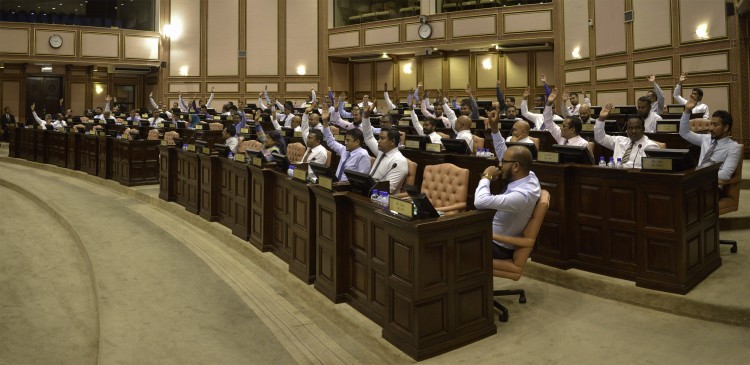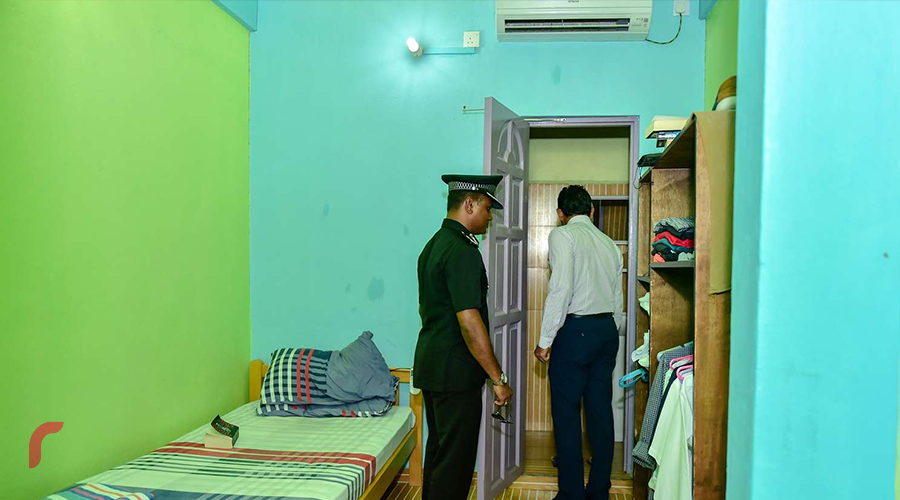Bribery to remain a crime following condemnation
The amendment bill to the penal code would have removed the section defining bribery as a crime


Members vote in parliament
Following condemnation regarding ruling Progressive Party of Maldives (PPM)'s bill to remove the penal code section making bribery a criminal offense, the bill has been sent back to the committee for changes.
The amendment bill to the penal code proposed by Feydhoo MP Ibrahim Didi on behalf of the government in July would have removed the section defining bribery as a crime.
Following criticism after the issue surfaced, pro-government Fonadhoo MP Abdul Raheem Abdulla proposed another amendment bill that would retain the section on bribery.
The committee evaluated MP Didi’s bill and its report was put on the parliament floor on Wednesday, after which the parliament voted to return the bill back to the committee.
Before the vote, speaker Abdulla Maseeh recommended that the committee evaluate both MP Didi and MP Abdul Raheem’s bills as the same.
At Wednesday’s sitting, the ruling party’s senior lawmaker Nihan Hussain Manik repeatedly said that the bill would not have removed the section on bribery. But some have noted that if what Nihan said was true, then the bill would not have been taken back for changes after the government faced public condemnation.
RaajjeMV understands that Attorney General Mohamed Anil met with the ruling party’s parliamentary group on Tuesday following the controversy. After the meeting, MP Abdul Raheem proposed the new amendment bill to the penal code to retain the section on bribery, which was drafted by the Attorney General’s office.






